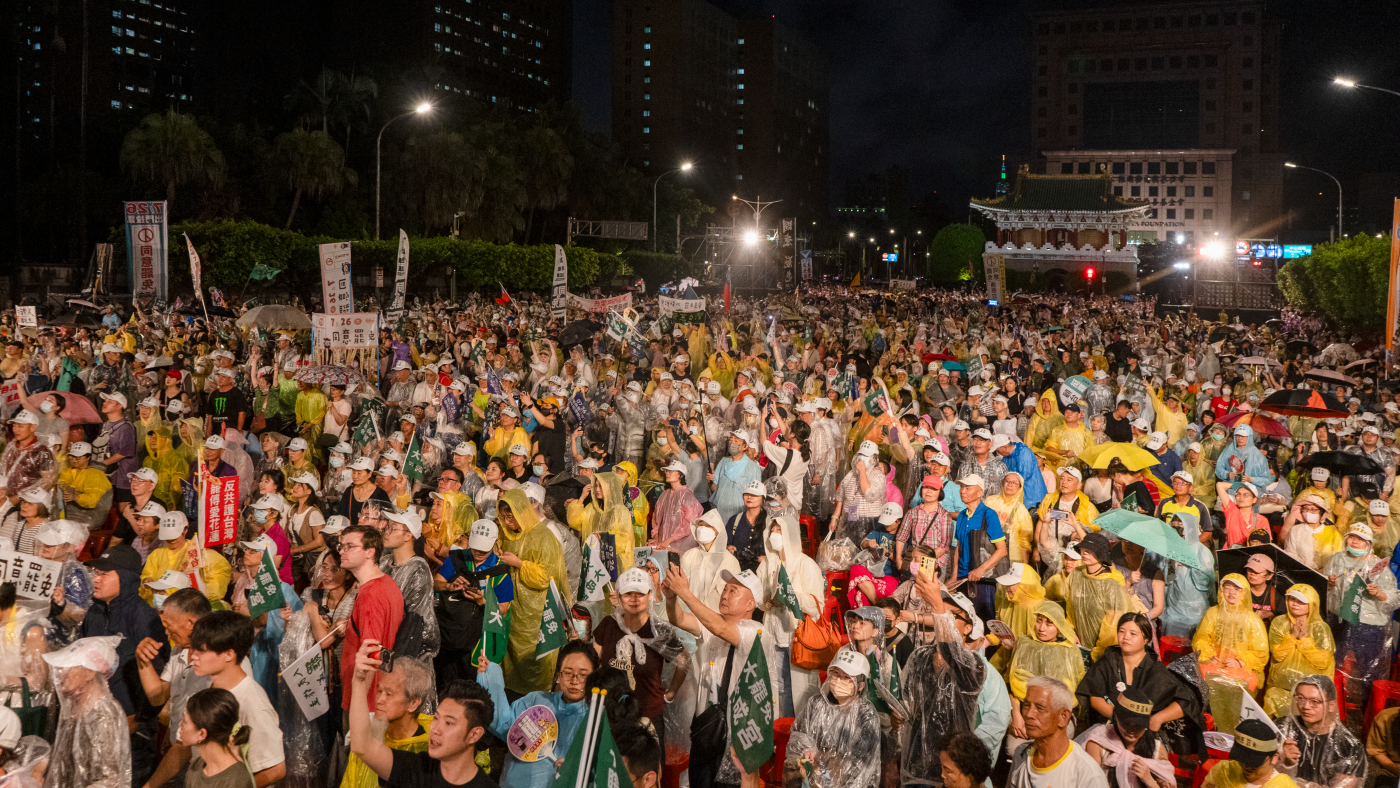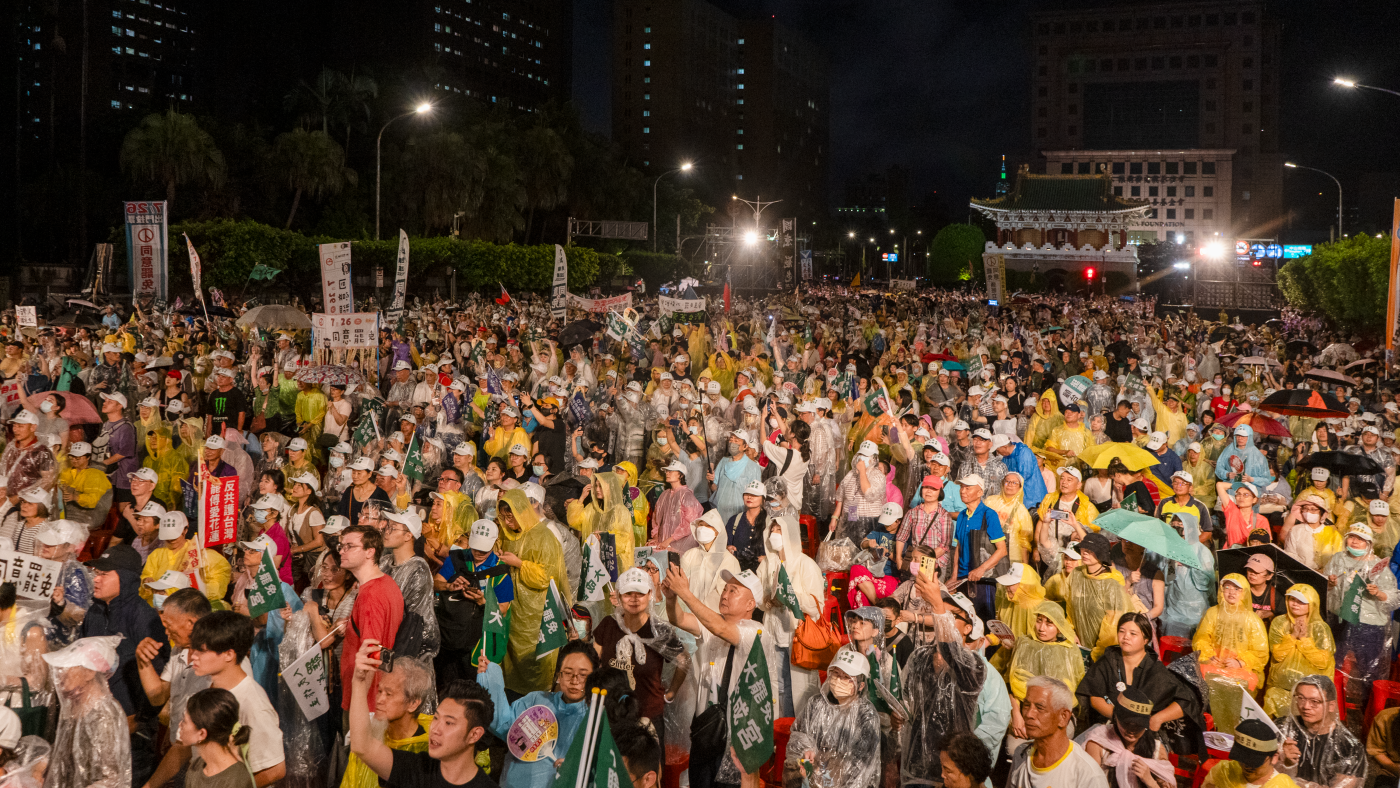The Persistence of Political Gridlock in Taiwan: An Analysis of the Failed Recall Effort
Introduction: A Nation at a Crossroads
Taiwan’s political landscape is a tapestry of deep divisions and legislative deadlock, a reality that has become increasingly pronounced in recent years. The recent failure of a high-profile recall effort aimed at unseating opposition lawmakers has brought these divisions into sharp focus. This political stalemate is not merely an internal affair but carries significant implications for Taiwan’s future, both domestically and in its complex relationship with China. The recall effort, though ultimately unsuccessful, has underscored the entrenched nature of political polarization and the challenges of governing in a deeply divided nation.
A Divided Legislature and the Rise of Recall Efforts
The Democratic Progressive Party (DPP), led by President Lai Ching-te, lost its legislative majority during the 2024 elections, resulting in a divided government. The opposition, primarily the Nationalist Party (KMT), now controls the legislative branch, creating a scenario where the executive and legislative branches are at odds. This division has led to unprecedented levels of animosity and gridlock, with lawmakers frequently deadlocking on critical issues, including national security, economic policy, and cross-strait relations.
In response to this gridlock, a recall campaign was launched targeting 24 opposition lawmakers. The recall effort was framed as a means to break the political deadlock and enable the government to address pressing issues more effectively. Proponents argued that removing these lawmakers, who were accused of undermining Taiwan’s national security and being sympathetic to China, would restore balance to the legislature. However, the opposition and their supporters viewed the recall as an abuse of power and an attempt to silence dissenting voices.
The Recall Vote: A Test of Political Will
The recall vote was seen as a crucial test of political will, with both sides recognizing its potential to reshape the legislative landscape. The campaign was marked by intense political maneuvering, with both sides rallying their supporters and framing the vote as a referendum on Taiwan’s future. The recall effort was unprecedented in Taiwanese politics, as it marked the first time recall petitions were mobilized on a national scale.
As tensions rose, China entered the fray, rallying in support of the opposition lawmakers facing recall. This external involvement further complicated the situation, adding another layer of complexity to Taiwan’s already fraught political dynamics. The recall vote ultimately failed, with the opposition lawmakers retaining their seats and preserving their controlling majority in the legislature.
The Failure of the Recall and its Implications
The failure of the recall effort has several important implications for Taiwan’s political future. First, it reinforces the existing political gridlock, making it more difficult for the government to pass legislation and address critical issues. Second, it deepens the existing mutual distrust that plagues intra-party politics in Taiwan, hindering the development of a coherent and unified strategy to deal with geopolitical challenges.
The recall’s failure also highlights the challenges of navigating Taiwan’s complex relationship with China. The opposition lawmakers targeted by the recall effort are often labeled as “China-friendly,” reflecting the deep divisions within Taiwanese society over the island’s relationship with its powerful neighbor. The recall effort was, in part, a reflection of these divisions, with proponents seeking to remove lawmakers perceived as being too accommodating to China.
Echoes of the Past: The Sunflower Movement
The current political strife in Taiwan evokes memories of the Sunflower Movement, a series of protests that took place in 2014 in response to a trade agreement with China. Similar to the present situation, the Sunflower Movement was fueled by concerns about Taiwan’s sovereignty and its relationship with China. The protests highlighted the deep divisions within Taiwanese society and the challenges of navigating its complex relationship with its powerful neighbor.
The Sunflower Movement also underscored the power of grassroots activism in shaping Taiwan’s political landscape. The movement was largely driven by young people, who took to the streets to express their concerns about the trade agreement and the broader implications for Taiwan’s sovereignty. The movement ultimately succeeded in derailing the trade agreement, demonstrating the power of public opinion in shaping Taiwan’s political trajectory.
The Challenge of Governing in a Divided Nation
President Lai Ching-te now faces the daunting task of governing a nation deeply divided and grappling with significant political gridlock. He must find ways to bridge the divide between the DPP and the opposition, foster greater cooperation in the legislature, and address the concerns of all segments of Taiwanese society.
One of the key challenges facing President Lai is the need to balance the demands of his party’s base with the need to govern effectively. The DPP is a progressive party that has traditionally been more skeptical of China and more focused on issues such as human rights and democracy. The KMT, on the other hand, is more conservative and has traditionally been more accommodating to China. This ideological divide makes it difficult to find common ground on critical issues, including cross-strait relations.
Navigating Geopolitical Challenges
Taiwan’s political challenges are further complicated by the looming presence of China. Beijing views Taiwan as a renegade province and has not ruled out the use of force to achieve reunification. As Taiwan navigates its internal political dynamics, it must also remain vigilant in the face of external threats. Crafting a coherent and unified strategy to deal with these mounting geopolitical challenges requires overcoming the existing political gridlock and fostering a sense of national unity.
One of the key challenges facing Taiwan is the need to balance its desire for greater autonomy with the need to maintain stable relations with China. This is a delicate balancing act, as any perceived move towards greater autonomy could provoke a strong reaction from Beijing. At the same time, any perceived move towards greater accommodation with China could provoke a strong reaction from Taiwan’s pro-independence factions.
A Future Uncertain
The failure of the recall effort underscores the deep-seated political divisions within Taiwan and the challenges of overcoming legislative gridlock. As Taiwan moves forward, it must find ways to bridge these divides, foster greater cooperation, and address the pressing issues facing the nation. Only then can it hope to secure its future and navigate the complex geopolitical landscape that lies ahead.
A Fork in the Road: Unity or Division
Taiwan stands at a crucial juncture. The path ahead depends on whether its political leaders can rise above partisan divisions and work together to address the challenges facing the island. Failure to do so risks further entrenching the gridlock, undermining Taiwan’s ability to respond effectively to external threats, and ultimately jeopardizing its future. The time for unity and decisive action is now.
The recall effort, though ultimately unsuccessful, has highlighted the deep divisions within Taiwanese society and the challenges of governing in a deeply divided nation. It has also underscored the need for greater political cooperation and a more inclusive approach to governance. As Taiwan moves forward, it must find ways to bridge these divides and foster a sense of national unity. Only then can it hope to secure its future and navigate the complex geopolitical landscape that lies ahead.








